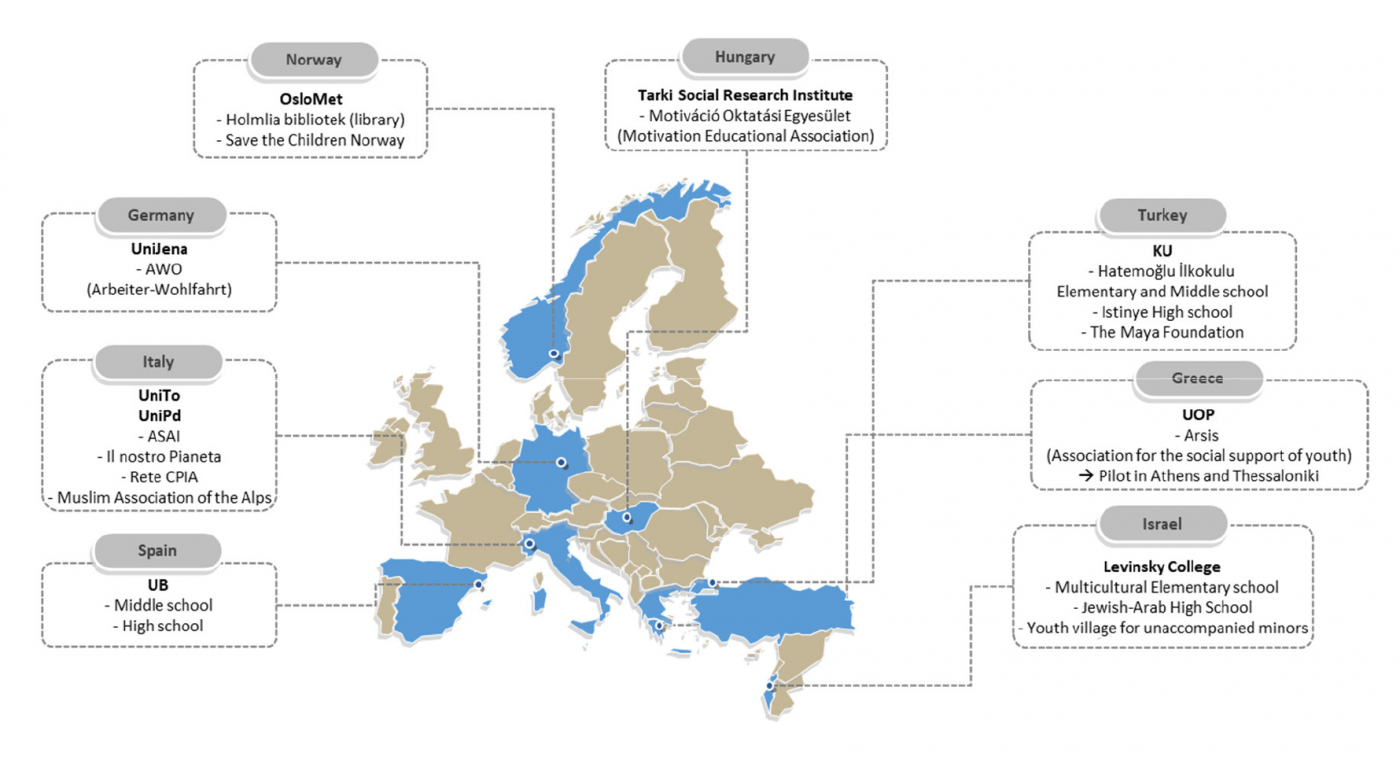KIDS4ALLL – Key Inclusive Development Strategies for Life Long Learning
Facilitating migrant students’ inclusion in educational systems is one of the most significant social challenges in order to promote social cohesion.
Drawing on the Council Recommendation of 22 May 2018 on Key Competences for Lifelong Learning’, and in particular on the European Pillar of Social Rights, the KIDS4ALLL project aims to support the lifelong right to access high quality, inclusive training, focusing on young migrants in particular.
The initiative’s target groups are students of primary, lower secondary and the first two years of upper secondary school, with or without a migrant background, but also teachers, trainers and parents.
The project has the ambitious aim of testing a peer-to-peer collaboration scheme in formal (school), non-formal (associations, libraries, youth centres) and informal educational contexts (social networks and digital environments used every day by youths).
In order to achieve this, the training path aims at promoting those transversal skills (problem solving, critical thinking, collaboration capacity, creativity, divergent thinking, self-regulation) which can enable youths to meet social challenges, dialogue and exchange ideas, in a long-term educational perspective, and fully participate in communitarian life.
The core aim of the activities is to create a peer-to-peer collaboration path among migrant and non-migrant youths, with the aim of producing creative digital contents, conceived to support the development of transversal skills and the 8 key European competences: communication in the mother tongue, communication in a foreign language, mathematical competence and basic competences in science and technology, digital competence, learning to learn, social and civic competences, sense of initiative and entrepreneurship, cultural awareness and expression.
The KIDS4ALLL digital platform will make possible the sharing of perspectives, resources and practices on intercultural issues, coming from multiple cultural environments and different national contexts. Moreover, the project will develop offline tools (texts, strategic guidelines, etc.) conceived to strengthen teachers’ and educators’ management capacity of intercultural and inclusive relationships in an innovative way.
The project, coordinated by the University of Turin, involves a wide network of national and international partners: Indire (Italy), University of Padua (Italy), Ars Media (Italy), Oslo Metropolitan University (Norway), Tarki Social Research Institute (Hungary), SIRIUS Policy Network on Migrant Education (Belgium), Koç University (Turkey), University of Peleponnese (Greece), University of Jena (Germany), University of Barcelona (Spain), Levinsky College of Education (Israel), Institute for Education (Malta), Foundation for Access to Rights (Bulgaria).
In the various countries, the research units will be supported by associations from the third sector and from the world of intercultural integration.

Indire is involved in the design of content and activities, in the experimental assessment of the impact on users and in the communication of the project.
Activities start on 1 April, 2021.
INDIRE Project Team:
- Alessia Rosa (Project Coordinator)
- Letizia Cinganotto
- Sara Mori
- Jessica Niewint


